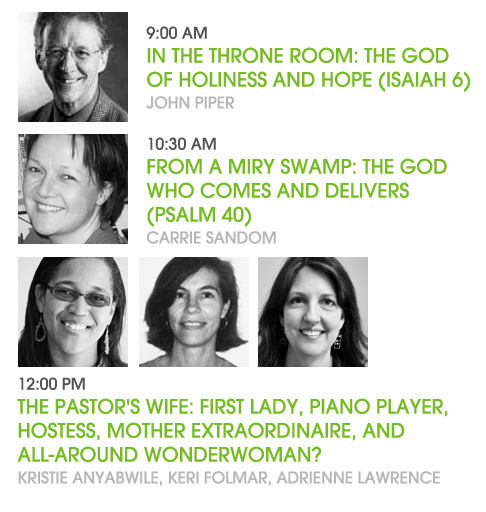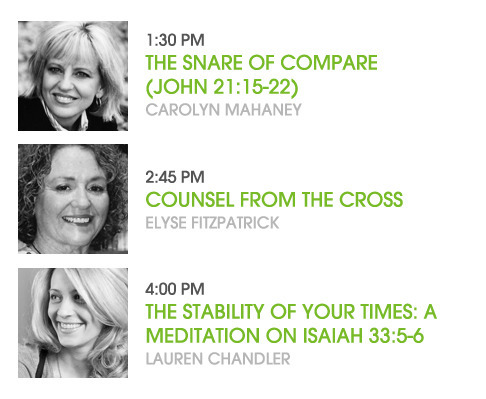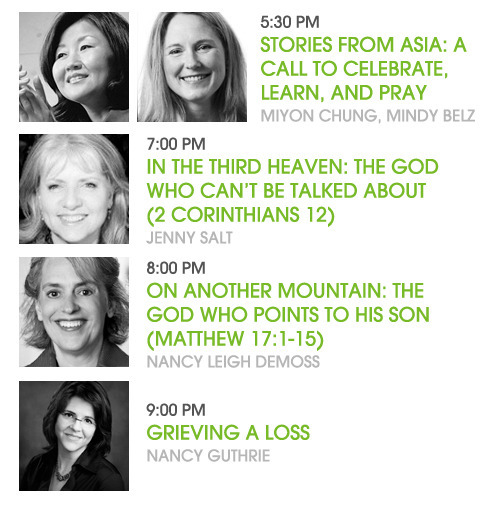Justin Taylor's Blog, page 204
June 26, 2012
Calvin on the Good News in Christ
From John Calvin’s preface to Pierre-Robert Olivétan’s 1535 translation of the Bible.
“To all those who love Christ and his gospel,” Calvin writes:
Without the gospel
everything is useless and vain;
without the gospel
we are not Christians;
without the gospel
all riches is poverty,
all wisdom, folly before God;
strength is weakness, and
all the justice of man is under the condemnation of God.
But by the knowledge of the gospel we are made
children of God,
brothers of Jesus Christ,
fellow townsmen with the saints,
citizens of the Kingdom of Heaven,
heirs of God with Jesus Christ,
by whom
the poor are made rich,
the weak strong,
the fools wise,
the sinners justified,
the desolate comforted,
the doubting sure, and
slaves free.
The gospel is the Word of life.
In Institutes 2.16.19 he explains that “We see that our whole salvation and all its parts are comprehended in Christ [Acts 4:12]. We should therefore take care not to derive the least portion of it from anywhere else.”
If we seek salvation
we are taught by the very name of Jesus that it is “of him.”
If we seek any other gifts of the Spirit,
they will be found in his anointing.
If we seek strength,
it lies in his dominion;
if purity,
in his conception;
if gentleness,
it appears in his birth. For by his birth he was made like us in all respects that he might learn to feel our pain.
If we seek redemption,
it lies in his passion;
if acquittal,
in his condemnation;
if remission of the curse,
in his cross;
if satisfaction,
in his sacrifice;
if purification,
in his blood;
if reconciliation,
in his descent into hell;
if mortification of the flesh,
in his tomb;
in newness of life,
in his resurrection;
if immortality,
in the same;
if inheritance of the Heavenly Kingdom,
in his entrance into heaven;
if protection, if security, if abundant supply of all blessings,
in his Kingdom;
if untroubled expectation of judgment,
in the power given to him to judge.
In short, since rich store of every kind of good abounds in him, let us drink our fill from this fountain and from no other.
Take a Free Class on Pro-Life Ethics
Scott Klusendorf, president of Life Training Institute and the author of The Case for Life, co-taught at a class on ethics at Biola University, and you can watch his sessions below for free.
A Conversation with My Favorite Wesleyan Theologian
John Starke at the Gospel Coalition has a great interview with Fred Sanders.
John’s experience is similar to mine:
I’ve been reading Fred Sanders’s blog for a long time, and when his book, The Deep Things of God, came out, I was eager to read it. He’s a good writer, he loves and quotes the Puritans, he’s a reasonable thinker, and he knows how to do careful exegesis.
He’s also a Wesleyan.
I don’t mean to declare that so menacingly. But the first time I learned Sanders—associate professor at the Torrey Honors Institute of Biola University—was a Wesleyan, I was a bit surprised. It’s not that Wesleyans and Arminians can’t be careful interpreters and reasonable thinkers—I just don’t often resonate with their writings and conclusions quite the way I do with Sanders’.
And so, I had to know: For a guy who loves, quotes, and depends upon Calvin and Calvinists, why isn’t Fred Sanders a Calvinist? We corresponded, and he explained the one thing he wished Calvinists would stop accusing Wesleyans of doing and why Wesleyanism is only the opposite of Calvinism in a very small thought-world.
It’s a fascinating conversation. They don’t necessarily get into these things, but one of the reasons I think I resonate so much with Fred is that he doesn’t seem to think Calvinism is the enemy, he doesn’t whine about his victim status as an Arminian within evangelicalism, and he seems to delight in our common ground.
Fred explains that he would sign up to be in the Wesleyans Who Love Calvin club, why he appreciates the Wesleyan tradition, and what keeps him from becoming a Calvinist. John also asks him to complete these sentences:
You haven’t really considered Wesleyanism unless you’ve read . . .
If you think Arminianism is semi-Pelagian, then . . .
The one thing I wish Calvinists would stop accusing Wesleyans of is . . .
Sure, Calvinists have J. I. Packer, but Wesleyans have . . .
Here’s just one interesting excerpt:
The Reformed tradition keeps producing good leaders who have a seriousness and responsibility about them. I’m not sure how to describe it. It’s as if they’re the grown ups, at least in American Protestantism. They may be tempted to abuse power (and that’s very bad), but at least they are comfortable with the responsible exercise of power, which is not something it’s easy to say about the Wesleyan tradition. Wesleyans are great at shaking things up, at being the powerful protest voice, at activating and empowering the marginalized. But Arminians don’t run things well. I sometimes think the healthiest state of affairs for an interdenominational coalition like evangelicalism would be if the Calvinists ran things and the Wesleyans were a very strong loyal opposition.
You can read the whole thing here.
Fred’s book Wesley on the Christian Life will be published next year in the series Theologians on the Christian Life, edited by Steve Nichols and me. And for those Calvinists who don’t think we should appreciate and learn from Wesley, read Fred’s post, “Calvinists Who Love Wesley” (Spurgeon was first in line).
June 25, 2012
A Conversation with Sinclair Ferguson
Sinclair Ferguson is one of my favorite people on the planet. Every time I hear him I come away instructed, edified, and encouraged.
Here is a 40-minute conversation with him. In the first 17 minutes he tells his own story (conversion and calling to the ministry), and then in the second half he answers various questions and gives unusually wise, countercultural counsel.
What Is the Most Important Thing about Us?
A. W. Tozer:
What comes into our minds when we think about God is the most important thing about us.
The history of mankind will probably show that no people has ever risen above its religion, and man’s spiritual history will positively demonstrate that no religion has ever been greater than its idea of God. Worship is pure or base as the worshiper entertains high or low thoughts of God.
For this reason the gravest question before the Church is always God Himself, and the most portentous fact about any man is not what he at a given time may say or do, but what he in his deep heart conceives God to be like.
We tend by a secret law of the soul to move toward our mental image of God. This is true not only of the individual Christian, but of the company of Christians that composes the Church. Always the most revealing thing about the Church is her idea of God.
-A.W. Tozer, The Knowledge of the Holy (New York: HarperCollins, 1978), 1.
June 23, 2012
Watch the Saturday Livestream for the TGC Women’s Conference
You can watch day 2 of the TGC Women’s Conference here.
Here is the Saturday schedule (all times Eastern):
June 22, 2012
How Can Married Couples Get Along When They Are Very Different?
CCEF’s David Powlison:
Steve Saint’s Testimony from His Hospital Bed
Steve Saint, son of missionary martyr Nate Saint and a missions advocate/entrepreneur with Itech (Indigenous People’s Technology Center), speaks from his hospital bed after an accident left him partially paralyzed.
CT has more on the accident here.
You can also listen to Steve’s 2005 message, “Sovereignty, Suffering, and the Work of Missions” and read for free his chapter in the book Suffering and the Sovereignty of God.
The Greatest Story Ever Told Is Also the Truest Story Ever Told
From the Gospel Project:
Do You Expect a Response to the Preaching of the Gospel?
“St Paul expected his hearers to be moved. He so believed in his preaching that he knew that it was “the power of God unto salvation” [Rom. 1:16]. This expectation is a very real part of the presentation of the Gospel. It is a form of faith. A mere preaching which is not accompanied by the expectation of faith, is not a true preaching of the Gospel, because faith is a part of the Gospel. Simply to scatter the seed, with a sort of vague hope that some of it may come up somewhere, is not preaching the gospel. It is indeed a misrepresentation of the gospel. To preach the Gospel requires that the preacher should believe that he is sent to those whom he is addressing at the moment, because God has among them those whom He is at the moment calling: it requires that the speaker should expect a response.”
—Roland Allen, Missionary Methods—St. Paul’s or Ours? (Grand Rapids, MI: Eerdmans, 1962), p. 74.
HT: David Hosaflook
Justin Taylor's Blog
- Justin Taylor's profile
- 44 followers







